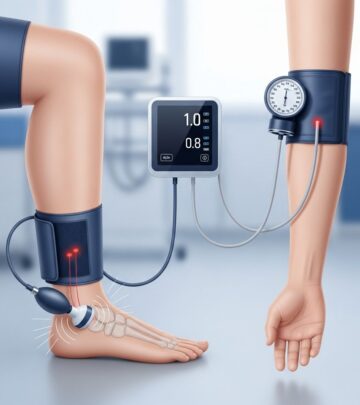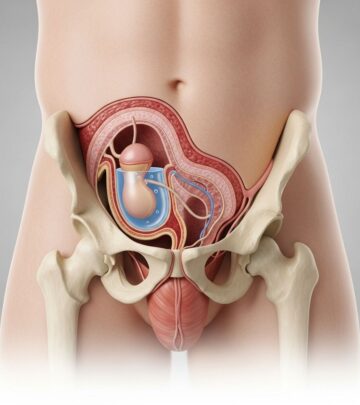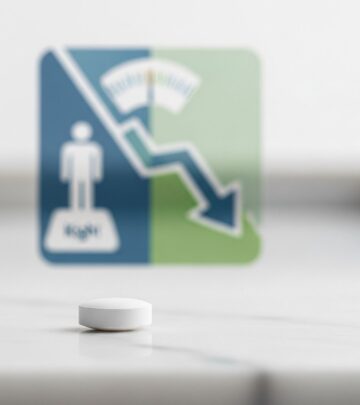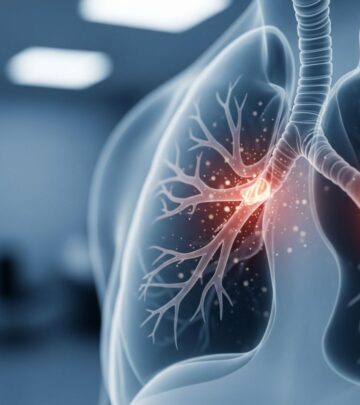High Potassium (Hyperkalemia): When to See a Doctor
Recognize the warning signs and critical symptoms of hyperkalemia to know when urgent medical care is needed.
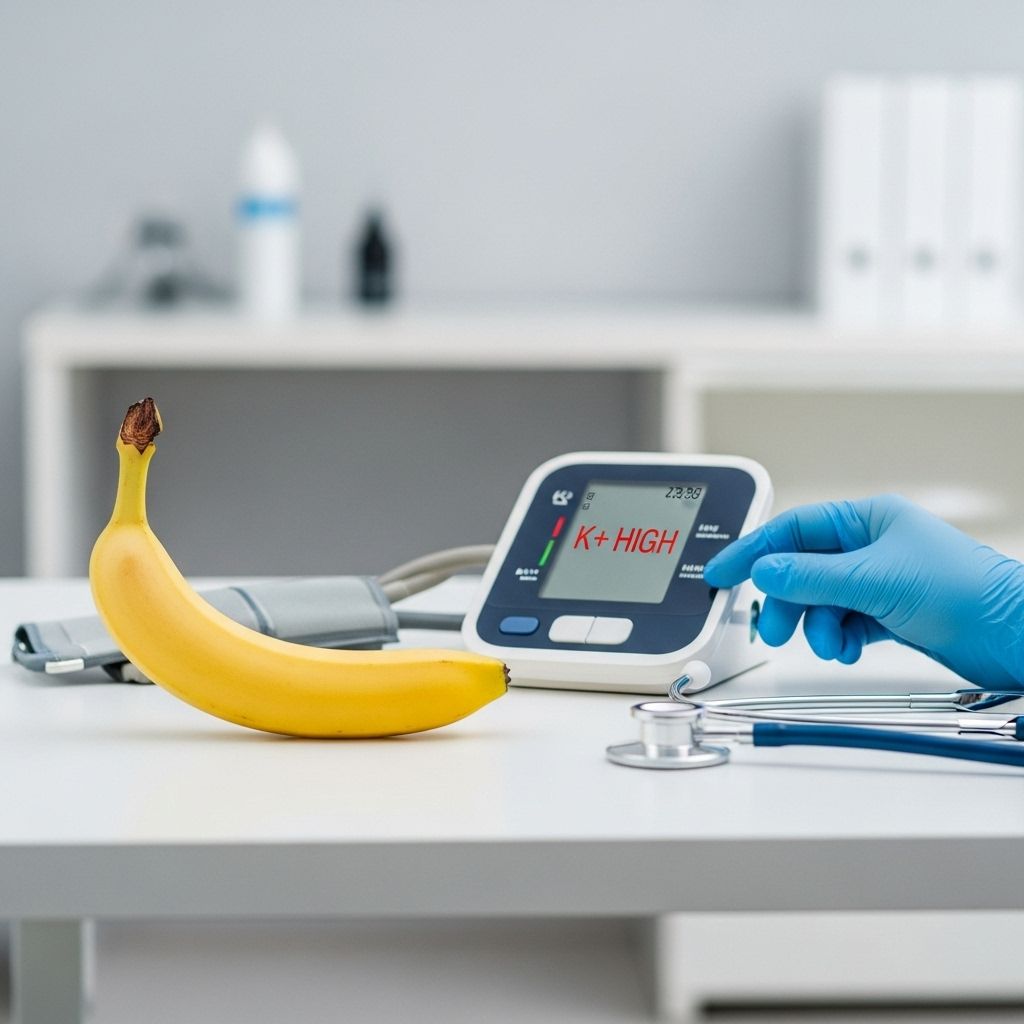
High potassium, also known as hyperkalemia, is a medical condition where the potassium level in your blood exceeds the normal range. This condition can be life-threatening and often requires urgent medical intervention. Recognizing when to see a doctor for hyperkalemia is crucial for preventing serious health complications, especially if you are at higher risk due to kidney disease or specific medications.
What Is Hyperkalemia?
Hyperkalemia refers to a blood potassium concentration higher than what is considered healthy for the body. Potassium is vital for the function of nerve and muscle cells, including those within the heart. The kidneys play a major role in regulating potassium levels in the blood. A typical healthy potassium level ranges from 3.6 to 5.2 millimoles per liter (mmol/L). When the potassium level rises above 6.0 mmol/L, it becomes potentially dangerous and may demand immediate treatment.
Why Is High Potassium Dangerous?
Excessive potassium in the blood can disrupt heart rhythm (arrhythmias) and impair nerve and muscle function. Extremely high levels can lead to cardiac arrest or sudden death. For people with weakened kidney function or those on certain medications, the risk of hyperkalemia is greatly increased. Swift recognition and management of symptoms are therefore essential.
When to See a Doctor
Seek Immediate Medical Attention
If you experience symptoms of hyperkalemia, it is essential to call your healthcare professional right away. This is even more critical if you:
- Have kidney disease
- Are taking medications that can raise potassium levels (such as certain diuretics, ACE inhibitors, or potassium supplements)
- Have previously experienced episodes of high potassium
Sudden or severe hyperkalemia is a medical emergency. If untreated, it can be fatal.
Symptoms That Signal a Serious Problem
Symptoms of hyperkalemia may be subtle or overlap with other health problems, especially if the potassium elevation is gradual. However, acute or significantly elevated potassium can cause distinct and potentially deadly symptoms. Call for emergency medical help if you experience any of the following:
- Muscle weakness or paralysis
- Weakness, numbness, or tingling in the arms and legs
- Shortness of breath
- Chest pain
- Irregular heart rhythms (arrhythmias)
- Nausea or vomiting
These symptoms can develop rapidly and may precede more severe complications, including cardiac arrest.
Who Is Most at Risk?
- Individuals with chronic kidney disease or acute kidney injury
- People taking potassium-increasing medications, such as potassium-sparing diuretics, ACE inhibitors, angiotensin receptor blockers, or specific antibiotics
- Patients with diabetes mellitus, heart failure, or other chronic illnesses
- Those with significant tissue damage (from trauma, burns, or some cancers)
- Individuals consuming a potassium-rich diet or using supplements without medical guidance
Danger Signs: What to Watch For
If you have any risk factors for hyperkalemia, it is essential to remain vigilant. Symptoms may not be obvious at first, but any of the following require prompt medical evaluation:
- Sudden muscle weakness or inability to move a limb
- Tingling, unusual sensations, or numbness in the arms, legs, or face
- New or unexplained shortness of breath
- Irregular or rapid heartbeat
- Pain or tightness in your chest
- Nausea associated with other symptoms above
People with slow-developing hyperkalemia may only feel generally unwell, tired, or have muscle cramps. Families and caregivers should also be alert to these danger signs, especially in elderly individuals or those with existing health problems.
Common Causes and Triggers
Understanding what leads to high potassium can help prevent life-threatening episodes. Key causes include:
- Kidney disease – Reduced ability to regulate potassium naturally
- Certain medications – Particularly those affecting kidney function or electrolyte balance
- Acute illnesses – Severe infections, dehydration, or poor blood flow
- Major tissue injury – Trauma, burns, or breakdown of muscle tissue releases potassium into the blood
- Excess potassium intake – Overzealous use of potassium supplements or salt substitutes
Table: Typical Potassium Reference Ranges
| Category | Potassium Level (mmol/L) | Implication |
|---|---|---|
| Normal | 3.6–5.2 | Healthy, no intervention needed |
| Mild Hyperkalemia | 5.3–6.0 | Monitor, treat underlying cause |
| Severe Hyperkalemia | >6.0 | Immediate medical attention required |
Prevention, Monitoring, and Medical Follow-Up
If you are at risk of hyperkalemia, consider the following preventive steps:
- Work with your healthcare provider to monitor potassium and kidney function regularly
- Take prescribed medications precisely as directed
- Avoid high-potassium foods and supplements unless advised by your doctor
- Report any new or unexplained symptoms promptly
Regular blood tests are often recommended for people with chronic medical conditions affecting potassium levels. Early detection can make a major difference.
What to Expect at the Doctor’s Office
Your healthcare provider will assess your symptoms, medical history, and may order blood tests to confirm your potassium level. They may also check your heart rhythm via an electrocardiogram (ECG), since heart changes can occur before other symptoms develop. Treatment may include discontinuing or adjusting contributing medications, dietary changes, and—if urgently needed—medications or even dialysis to rapidly reduce potassium levels.
Frequently Asked Questions (FAQs)
Q: Can I have high potassium without symptoms?
A: Yes. Some people with mild or slowly increasing hyperkalemia may not notice specific symptoms. Only a blood test can confirm the diagnosis, especially in at-risk individuals.
Q: What medications are commonly associated with high potassium?
A: Medicines such as ACE inhibitors, potassium-sparing diuretics, certain antibiotics, and nonsteroidal anti-inflammatory drugs (NSAIDs) may contribute to higher potassium levels.
Q: How quickly can hyperkalemia become a medical emergency?
A: Hyperkalemia caused by sudden kidney failure, severe illness, trauma, or excessive potassium intake can develop rapidly and become life-threatening within hours.
Q: How is high potassium treated in an emergency?
A: Emergency treatment involves stabilizing the heart, rapidly lowering blood potassium (using medications or, sometimes, dialysis), and addressing the underlying cause.
Q: Can dietary changes alone manage high potassium?
A: While a low-potassium diet can help, management typically includes treating the underlying cause, adjusting medications, and other interventions as guided by your healthcare provider.
Key Points to Remember
- Hyperkalemia is a potentially life-threatening condition when severe
- Symptoms can be nonspecific but may progress rapidly to serious complications
- Seek immediate medical attention if you have chest pain, muscle weakness, or irregular heartbeat
- People with kidney disease or on specific medications should monitor potassium closely
Further Resources
- Regular checkups with your physician if you fall into a risk category
- Educational material from trusted healthcare institutions such as Mayo Clinic and Cleveland Clinic
- Speak to your pharmacist about medication risks and interactions
Read full bio of Sneha Tete

